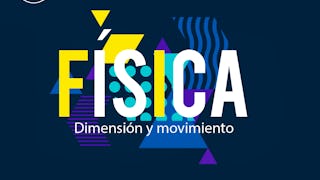Filter by
SubjectRequired
LanguageRequired
The language used throughout the course, in both instruction and assessments.
Learning ProductRequired
LevelRequired
DurationRequired
SkillsRequired
SubtitlesRequired
EducatorRequired
Explore the Geometry Course Catalog

Tecnológico de Monterrey
Skills you'll gain: Calculus, Integral Calculus, Mechanics, Applied Mathematics, Visualization (Computer Graphics), Physics, Geometry, Mathematical Modeling, Graphing, Trigonometry, Algebra

Universidad de los Andes
Skills you'll gain: Mathematics Education, Arithmetic, Geometry, Systems Of Measurement, Applied Mathematics

Tecnológico de Monterrey
Skills you'll gain: Mathematical Modeling, Calculus, Physics, Integral Calculus, Graphing, Advanced Mathematics, Applied Mathematics, Mechanics, Linear Algebra, Geometry, Trigonometry, Derivatives

Universidad de los Andes
Skills you'll gain: Mathematics Education, Arithmetic, Geometry, Systems Of Measurement, Graphing, Algebra

École Polytechnique Fédérale de Lausanne
Skills you'll gain: Geographic Information Systems, GIS Software, Spatial Data Analysis, NoSQL, Data Modeling, Database Design, Databases, Data Storage Technologies, SQL, Data Storage, Data Capture, Query Languages, Relational Databases

Tecnológico de Monterrey
Skills you'll gain: Integral Calculus, Graphing, Calculus, Systems Of Measurement, Mechanics, Physics, Applied Mathematics, Derivatives

Universidad Nacional Autónoma de México
Skills you'll gain: Algebra, Mathematical Software, Trigonometry, Mathematical Modeling, General Mathematics, Graphing, Geometry, Arithmetic, Advanced Mathematics
 Status: Free Trial
Status: Free TrialNational Taiwan University
Skills you'll gain: SketchUp (3D Modeling Software), 3D Modeling, Structural Engineering, Architectural Drawing, Civil and Architectural Engineering, Construction, Building Design, Computer-Aided Design, Architectural Design, Engineering Drawings

University of Illinois Urbana-Champaign
Skills you'll gain: Application Specific Integrated Circuits, Hardware Design, Computer-Aided Design, Electronic Hardware, Systems Design, Computer Architecture, Electrical and Computer Engineering, Engineering Design Process, Semiconductors, Network Routing, Computational Logic, Data Structures, Algorithms, Mathematical Modeling, Calculus

The University of Hong Kong
Skills you'll gain: Medical Imaging, Dentistry, Dental Procedures, Laboratory Testing, X-Ray Computed Tomography, Oral and Dental Care, Radiography, Oral Health, Computer-Aided Design, 3D Modeling, Chemistry
 Status: Free Trial
Status: Free TrialMichigan State University
Skills you'll gain: Game Design, Unity Engine, Video Game Development, Peer Review, Cross Platform Development, Software Design, User Interface (UI), C# (Programming Language), UI Components, Object Oriented Programming (OOP), Animations, Scripting, Creativity
 Status: New
Status: NewThe Hong Kong University of Science and Technology
Skills you'll gain: Calculus, Engineering Calculations, Differential Equations, Integral Calculus, Engineering Analysis, Applied Mathematics, Numerical Analysis, Algebra, Advanced Mathematics, Trigonometry, Physics, Mathematical Theory & Analysis, Derivatives
In summary, here are 10 of our most popular geometry courses
- Física: Vectores, Trabajo y Energía: Tecnológico de Monterrey
- Aprendizaje de las matemáticas de primaria: Universidad de los Andes
- Conceptos y Herramientas para la Física Universitaria: Tecnológico de Monterrey
- Contenido de las matemáticas de primaria: Universidad de los Andes
- Geographical Information Systems - Part 1: École Polytechnique Fédérale de Lausanne
- Física: Dimensión y Movimiento: Tecnológico de Monterrey
- Funciones algebraicas y trascendentes : Universidad Nacional Autónoma de México
- 工程圖學 3D CAD 專題: National Taiwan University
- VLSI CAD Part II: Layout: University of Illinois Urbana-Champaign
- Materials in Oral Health: The University of Hong Kong










